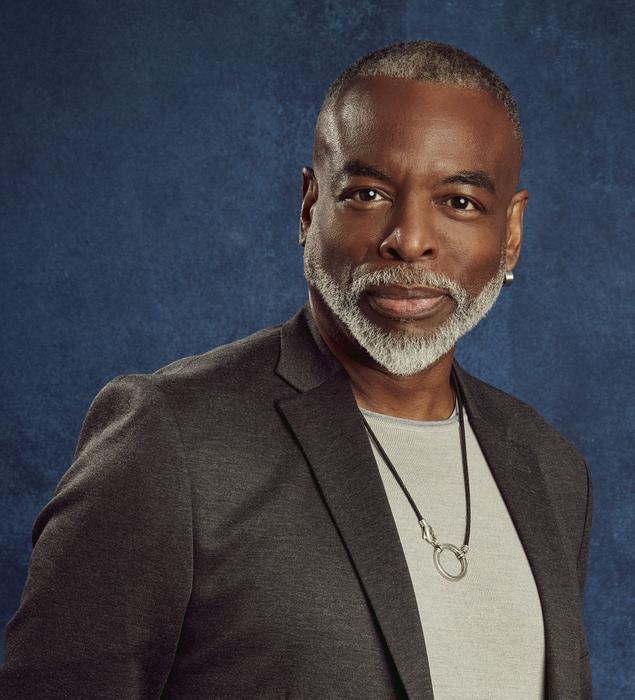CLEVELAND—In our increasingly interconnected world, the ongoing risk of communicable health conditions to human life demands organized and equitable public health efforts to combat known and emerging local and global health threats.

Credit: LeVar Burton
CLEVELAND—In our increasingly interconnected world, the ongoing risk of communicable health conditions to human life demands organized and equitable public health efforts to combat known and emerging local and global health threats.
But how best to tackle such critical needs and balance individual autonomy with preventing public harm? How should we care for those who take care of us? How can we advance research and regain the trust of historically marginalized groups? What role should the United States play in the world’s healthcare plans?
These and other issues will be discussed this fall at Case Western Reserve University’s Inamori Ethics Prize Symposium, featuring panelists Dr. Anthony Fauci, Dr. Amy Acton, Macalester College President Suzanne Rivera and LeVar Burton, a celebrated American actor, director, producer, writer and advocate.
“Addressing Moral Imperatives in Public Health, Locally and Globally” will be held Sept. 19, 12:30-2 p.m. at the Milton and Tamar Maltz Performing Arts Center at The Temple-Tifereth Israel at Case Western Reserve.
The academic symposium is part of the Inamori Ethics Prize events, featuring a ceremony celebrating Fauci, physician, immunologist and infectious disease expert, as recipient of the 2024 Inamori Ethics Prize by the Inamori International Center for Ethics and Excellence at Case Western Reserve.
Fauci will receive the prize, deliver a free public lecture about his work, and participate in the symposium during Inamori Center events. Registration, required for both the ceremony and symposium, opens July 30.
“The pandemic revealed how a crisis in public health can quickly strain resources and put people into conflict, while also bringing up deep-seated concerns about trust in our leaders, government and public-health institutions, and even our neighbors,” said Shannon E. French, Inamori Professor in Ethics and director of the Inamori Center, who will moderate the symposium. “We need to have more conversations about what we owe to one another and how we can best balance burdens so that we don’t sacrifice our humanity when nature puts us to the test.”
The panelists
Soon after completing his internal medicine residency, Fauci joined the National Institute of Allergy and Infectious Diseases (NAID) at the National Institute of Health (NIH) in 1968 as a clinical associate. He went on to become a section head and a lab chief before being appointed NIAID director in 1984.
Fauci managed these positions while continuing to conduct research and treat patients. He discovered treatments for formerly fatal diseases and contributed to the global medical community’s understanding of the human immune system. His research is among the most cited in the world. He is a vocal supporter of the United States President’s Emergency Plan for AIDS Relief (PEPFAR).
Acton is a physician and community leader who has spent over 35 years pursuing her passion for public health and wellness. She is in private practice in preventive medicine and global public health.
Whether as director of the Ohio Department of Health during early days of the COVID pandemic, vice president of Human:Kind at the Columbus Foundation, or professor in global public health, Acton has inspired interdisciplinary, cross-sector teams to address our most challenging issues.
An accomplished leader, instructor, researcher, and scholar, Rivera is an advocate for social justice and brings a strong commitment to inclusion and equity to her role as Macalester College president.
Before being appointed at Macalester, Rivera was vice president for research and technology management at Case Western Reserve and served on the faculty in the Departments of Bioethics and Pediatrics at CWRU, leading original research projects funded by the NIH, the federal Office of Research Integrity, and The Cleveland Foundation.
Burton has been called a national treasure. He won the Inamori Ethics Prize in 2019 for his outstanding global ethical leadership in the arts as an advocate for important and worthy causes—especially literacy for children and adults and support for AIDS/HIV research and treatment.
His work for children’s literacy through the long-running PBS children’s series Reading Rainbow and his nonprofit RRKIDZ has had a profound impact around the world, as has his support for more funding for AIDS/HIV research. He also endorses the importance of representation in the arts and in literature, as well as in policy making and leadership.
The Inamori Ethics Prize
The Inamori Ethics Prize has been awarded since 2008 to honor outstanding international ethical leaders whose actions and influence have greatly improved the condition of humankind.
###
Case Western Reserve University is one of the country’s leading private research institutions. Located in Cleveland, we offer a unique combination of forward-thinking educational opportunities in an inspiring cultural setting. Our leading-edge faculty engage in teaching and research in a collaborative, hands-on environment. Our nationally recognized programs include arts and sciences, dental medicine, engineering, law, management, medicine, nursing and social work. About 6,200 undergraduate and 6,100 graduate students comprise our student body. Visit case.edu to see how Case Western Reserve thinks beyond the possible.



